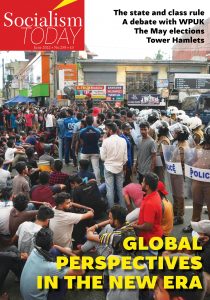July 5 is the sixtieth anniversary of Algeria’s Independence Day in 1962 which marked the end of the eight-year war of independence. CLARE DOYLE looks back at a seminal struggle in the post-1945 movement against colonialism.
“The Algerian war, 1954 to 1962, was a savage colonial war, killing an estimated million Muslim Algerians and expelling the same number of European settlers from their homes. It was to cause the fall of six French prime ministers and the collapse of the Fourth Republic; it came close to bringing down de Gaulle and – twice – to plunging Metropolitan France into the chaos of civil war”. This description is carried on the back cover of an authoritative book by historian Alistair Horne, called A Savage War of Peace, published in 1977.
The Algerian war of independence lasted twice as long as the first world war and its victory marked the end of 130 years of brutal French colonial rule. But even today, six decades on, Algerians both in their ‘homeland’ and in metropolitan France, face an uphill struggle for democratic as well as economic justice.
Read more
